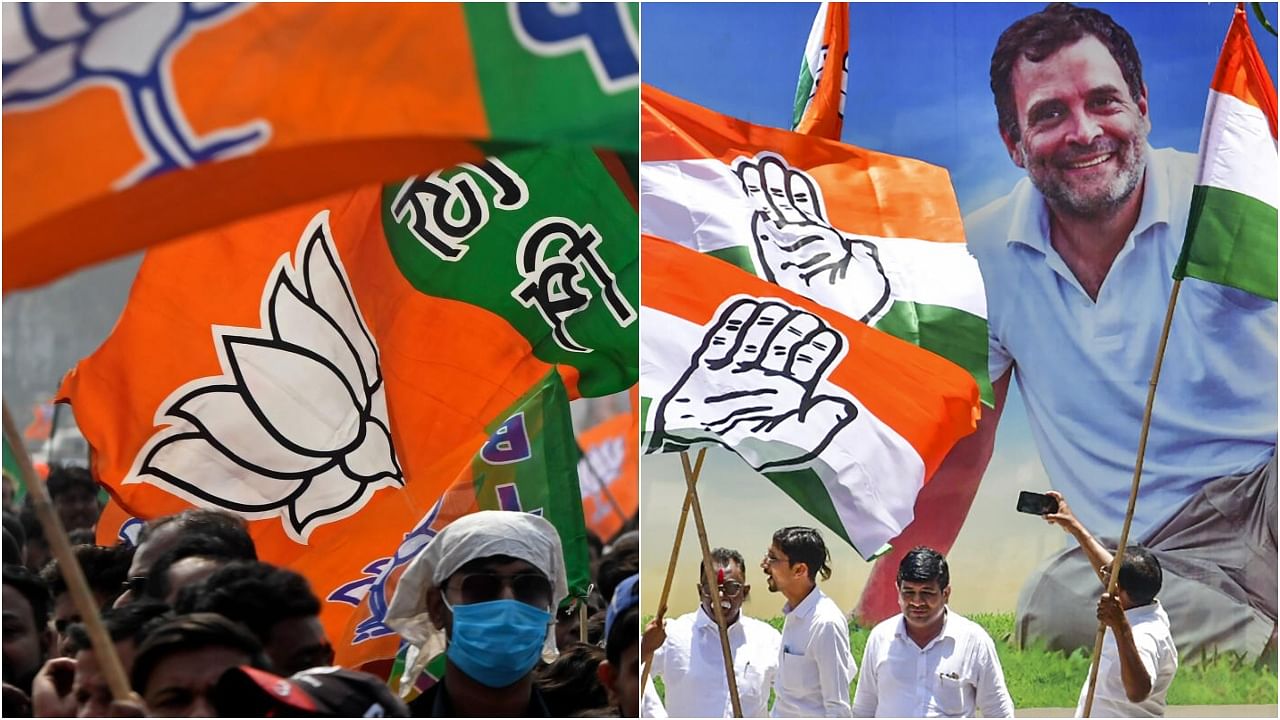
Karnataka is among the few states where the Indian National Congress and the Bhartiya Janata Party (BJP) are considered equals in a poll showdown. As expected, they engaged in a fierce fight over several weeks, brought in their star campaigners, conducted massive roadshows, and used a variety of issues to argue against each other.
“There is no doubt about our victory in Karnataka,” said Congress President Mallikarjun Kharge; “BJP is winning on May 13, no doubt,” said outgoing Chief Minister Basavaraj Bommai. Kharge’s confidence prevails finally as the Congress returns to power single-handedly in the state. Quite relieving too, as they don’t have to hand the chief ministership to a junior partner on a silver platter this time.
The result signals a few things to both parties — hope for the Congress and a wake-up call for the BJP, ahead of the 2024 Lok Sabha polls.
While the Congress has been losing its strength across India, the result comes as a silver lining for the grand old party, as it is only its third win in 16 Assembly elections in a little over two years. Despite personal differences among state leaders, the party pulled off magic in almost all regions of Karnataka, riding on the anti-incumbency factor that had reached a tipping point. Prime Minister Narendra Modi himself took charge of the poll campaign in the ending phases, but even the famed ‘Modi magic’ failed to reinvigorate voters for a favourable decision.
The Congress was successful in giving voters the impression that there was a concerted plan by the BJP to silence Rahul Gandhi and D K Shivakumar. National visibility of the defamation case against Gandhi over his Kolar speech about the Modi surname and his exit from Parliament as well as official residence had their fair share in vitiating BJP’s prospects. Two of BJP’s major promises on the manifesto — the implementation of uniform civil code, and the national register for citizens (NRC) — did not help much either, due to the imbroglio around them.
Accepting defeat, Bommai said: “We have not been able to make the mark. As a national party, we will not only analyse but also see what deficiencies and gaps were left at various levels.” If he did not see this coming, he is a failure, not just as a Chief Minister, but as a politician too. Allegations of commission in government projects to the tune of 40 per cent had unsettled his government from the very beginning. Outreach to the Dalits and the Vokkaligas has had no major impact, and he could not shrug off the image that his is a Lingayat-dominated party.
Elsewhere, the BJP prides itself on the delivery of development projects for all — Sabka Vikas — but in Karnataka, it relied more on major infrastructure projects like the Bengaluru-Mysuru expressway and Bengaluru Metro, and did not focus much on the development of semi-urban and rural areas. If Bommai indeed meant serious retrospection, then he will need to identify what worked against anti-incumbency in Uttar Pradesh and Gujarat, and what favoured that sentiment in Himachal Pradesh, and now Karnataka.
The message is clear — the Modi factor alone cannot help the BJP, at least in the southern states. They do have leaders, but not many with conviction, who could deliver on promises. A band of discontented apostates presented new problems to deal with. The current results will no doubt disrupt the BJP’s ‘look south’ plan, as they have been on an aggressive growth strategy in Tamil Nadu, and on a mission to entice Christians in Kerala. Karnataka is central to the BJP’s calculations, as it had contributed 25 seats to its Lok Sabha tally in 2019.
For the Congress though, it is about revival. It now has power in four states, and is an alliance partner in three other states. Against other talks, this win will cement its position at the helm of the Opposition pack ahead of the 2024 Lok Sabha polls. But do not yet read too much into the Karnataka results — the politics of the rest of India is often much different from that of the south.
Therefore, the real curtain-raiser to the big poll battle next year would be the elections that are to happen likely in the last two months of 2023 — especially in Rajasthan and Madhya Pradesh.
(Sreejith Panickar is a political commentator. Twitter: @PanickarS.)
(Disclaimer: The views expressed above are the author's own. They do not necessarily reflect the views of DH)